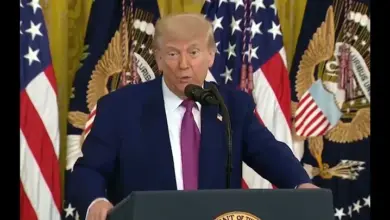World Food Day: Strengthening Ghana’s food security agenda

AS the world commemorated World Food Day yesterday under the theme “Hand in Hand for Better Food and a Better Future,” Ghana must pause and reflect on how far it has come as well as how much farther it must go in securing sustainable food for all.
Food, as the theme reminds us, is not merely sustenance; it is dignity, security, and survival. Every Ghanaian deserves access to safe, nutritious, and affordable food. Yet, for many households, this remains a daily struggle.
The combination of erratic weather, rising input costs, post-harvest losses, and weak market systems continues to undermine Ghana’s quest for food self-sufficiency.
Agriculture, long hailed as the backbone of the economy, employs millions and contributes substantially to national output. Still, its performance remains uneven and vulnerable to shocks.
The irony is glaring: a country blessed with fertile land, abundant water resources, and a vibrant youth population continues to battle food price inflation, malnutrition, and rural poverty.
In recent months, the soaring cost of staples such as maize, rice, and yam has deepened hardship for low-income families. These price surges expose the fragility of our food systems and the urgent need for bold, structural reforms.
The Ghanaian Times believes that Ghana’s response must go beyond emergency subsidies and political slogans. What is required is a coherent, long-term strategy anchored in sustainability, innovation, and accountability.
The government’s Feed Ghana Programme and other agricultural programmes are commendable efforts toward this goal. However, their success depends on effective implementation, transparency, and empowerment of the smallholder farmer, which is the true engine of Ghana’s food economy.
Investment in irrigation infrastructure is indispensable. It is unacceptable that only about two per cent of Ghana’s arable land is irrigated despite the enormous potential of the Volta Basin and other water bodies. Without reliable irrigation, year-round farming will remain elusive, and food imports will continue to drain scarce foreign exchange.
Equally pressing is the need to tackle post-harvest losses, which claim up to 30 per cent of some crops. Expanding storage facilities, processing industries, and rural road networks will reduce waste, enhance food availability, and create decent jobs.
A stronger partnership with the private sector, backed by incentives and access to credit, can fast-track this transformation.
Food security is not just about production; it is also about nutrition and behaviour. Households must be encouraged to adopt balanced diets and reduce dependence on imported, processed foods. Strengthening school feeding and community nutrition programmes will go a long way to improve the health and productivity of future generations.
As Ghana joins the world in celebrating World Food Day, one truth stands out: food security is national security. It is the bedrock of stability, growth, and social cohesion.
Achieving it demands commitment from government, collaboration across sectors, and active participation from citizens. Ghana has the resources, talent, and knowledge to feed itself and even to feed others. What remains is the will to turn this potential into prosperity.
🔗 Follow Ghanaian Times WhatsApp Channel today. https://whatsapp.com/channel/0029VbAjG7g3gvWajUAEX12Q
🌍 Trusted News. Real Stories. Anytime, Anywhere.
✅ Join our WhatsApp Channel now! https://whatsapp.com/channel/0029VbAjG7g3gvWajUAEX12Q






